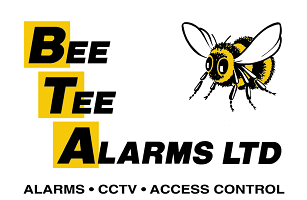The answer to the above asked question is generally dynamic and multi-dimensional in nature. This means there is no one straight answer to the question; do I need permission to install cctv? There are a range of ‘ifs’ and ‘buts’ associated with the same. Here we attempt to answer all the concerns that you might have regarding cctv installation.
1. Do I need permission to install cctv?
- Generally, you don’t need specific permission to install CCTV on your own property in the UK. However, there are important regulations to adhere to, especially when it comes to recording images of public areas.
Key Points to Remember:
- Privacy laws: You must respect the privacy of others. Avoid capturing images of public areas unnecessarily.
- Data Protection Act: If you’re processing personal data (like recording people’s faces), you might need to comply with data protection regulations.
- Informational signs: You should clearly inform people that they are being recorded.
- Image retention: You should only keep recordings for a reasonable period.
If you’re unsure about any aspect of CCTV installation or usage, it’s advisable to seek legal advice.
2. Do I need permission to install CCTV in commercial places in the UK?
- When installing CCTV systems in commercial properties, it is essential to complete necessary paperwork and notify the Information Commissioner’s Office (ICO) of your intentions. Although explicit permission is not required for the installation of commercial CCTV, informing the ICO is a mandatory step. Additionally, a Privacy Impact Assessment (PIA) must be created to evaluate the potential effects of the CCTV system on individuals’ privacy. This document is crucial for ensuring compliance with data protection regulations and safeguarding personal information.
3. Can I install CCTV as a tenant or leaseholder of the Council?
- Tenants and leaseholders have the legal right to install CCTV cameras for the protection of their property. However, the Council has established guidelines regarding the placement and use of these cameras. Before proceeding with any installation of CCTV on their property, tenants and leaseholders are required to inform the Council and obtain permission.
4. How can I ensure that my CCTV system complies with GDPR and UK data protection laws?
- To ensure your CCTV system complies with GDPR and UK data protection laws, you must adhere to the following principles:
Lawfulness, Fairness, and Transparency
- Clear Purpose: Define the specific purpose for using CCTV and document it.
- Data Minimisation: Only collect and process the necessary data.
- Privacy Notice: Inform individuals about your CCTV system, its purpose, and how data is handled.
This can be through clear signage or a privacy policy.
Data Subject Rights
- Access: Individuals have the right to request access to their personal data. Be prepared to provide copies of footage upon request.
- Rectification: If data is inaccurate, individuals have the right to request correction.
- Erasure: In certain circumstances, individuals can request the deletion of their data.
- Restriction of Processing: Individuals have the right to restrict the processing of their data in certain circumstances.
5. Are there specific CCTV regulations for retail, hospitality, or financial services businesses?
- While there aren’t specific regulations tailored solely to retail, hospitality, or financial services businesses, these industries do face unique challenges and considerations when it comes to CCTV surveillance.
Here are our tailored solutions to face these challenges:
- Data Protection: Regardless of the industry, complying with GDPR and UK data protection laws is essential.
- Privacy Notices: Clearly inform customers and employees about CCTV surveillance.
- Image Retention: Establish appropriate retention periods for CCTV footage.
- Staff Training: Ensure staff are aware of data protection obligations and how to handle CCTV footage.
- Cybersecurity: Protect CCTV systems from unauthorised access and data breaches.
6. How often should I maintain my CCTV system? A: Regular checks every month are recommended.
- While monthly checks are a good starting point, the frequency of CCTV maintenance depends on several factors:
- Environment: Outdoor cameras exposed to harsh weather conditions may require more frequent checks.
- System complexity: Larger, more complex systems might need more attention.
- Criticality: Systems used for high-security applications should be monitored more closely.
Generally, a good maintenance schedule includes:
- Daily: Quick visual checks for obvious issues like obstructions or damage.
- Weekly: Verify recording functionality and playback quality.
- Monthly: Thorough inspection of cameras, cables, and recording devices.
- Quarterly: Back up system data and review system performance.
- Annual: Professional maintenance or calibration
Choose Bee Tee Alarms
Ensure your property is secure by regularly checking your CCTV cameras! At Bee Tee Alarms, we offer comprehensive maintenance services to keep your system in top shape, ensuring you never miss a moment of protection. Whether it’s a routine check or a full system upgrade, our experts are here to help. Don’t leave your security to chance—contact Bee Tee Alarms today for peace of mind and professional support!




